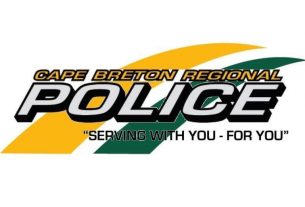**** CNS Media Release
New Rules for Short-Term Rentals
——————————————————–
Legislative amendments and regulations requiring all short-term rentals in the province to register by April 1, 2023, have been proclaimed.
Under the updated regulations, all short-term rentals – including those within people’s homes – must register annually with the Tourist Accommodations Registry and include their registration number in their online booking platform listings.
“These changes will help ensure we have a clear understanding of short-term rentals in the province and give municipalities access to the information they need to enforce land-use bylaws,” said Pat Dunn, Minister of Communities, Culture, Tourism and Heritage. “This is another tool to help us balance demand for tourism accommodations with the need for more housing across the province.”
Changes to the Tourist Accommodation Registration Act passed in April 2022 removed a registration exemption for short-term rentals operated in or attached to the host’s primary residence. The changes also require accommodations to verify they comply with municipal land-use bylaws.
The new rules will provide clearer data on short-term rentals in Nova Scotia and help municipalities identify short-term rentals in their communities to improve bylaw enforcement. This new provincial reporting requirement also means municipalities do not need to establish their own registration systems.
There are also requirements in the new regulations for short-term rental marketing platforms such as Airbnb and Vrbo. They will need to ensure only operators with a valid registration number are selling short-term rentals through their platforms, and they will be required to share information covered under the Tourist Accommodations Registration Act with the Province to support enforcement.
Quick Facts:
— the Tourist Accommodations Registration Act came into effect in April 2020
— the new regulations and amendments officially take effect on April 1, 2023
— short-term rentals are defined as roofed tourist accommodations provided for 28 days or less, including traditional accommodations (e.g., hotel, motel, inn, B&B, etc.) and housing stock (e.g., residential home, condo, apartment etc.)
— primary residence is defined as the home where someone lives as an owner or tenant; it is also the address used for bills, identification, taxes and insurance
— accommodation marketing platform operators who facilitate or broker short-term rental payment or compensation must also register to operate in Nova Scotia
Additional Resources:
Tourist Accommodations Registration Act: https://nslegislature.ca/sites/default/files/legc/statutes/tourist%20accommodations%20registration.pdf
Act to amend the Tourist Accommodations Registration Act: https://nslegislature.ca/sites/default/files/legc/PDFs/annual%20statutes/2022%20Spring/c029.pdf
Tourist Accommodations Registration Regulations: https://www.novascotia.ca/just/regulations/rxam-z.htm#toureg
Tourist accommodations registration website: https://beta.novascotia.ca/register-your-tourist-accommodation
–




